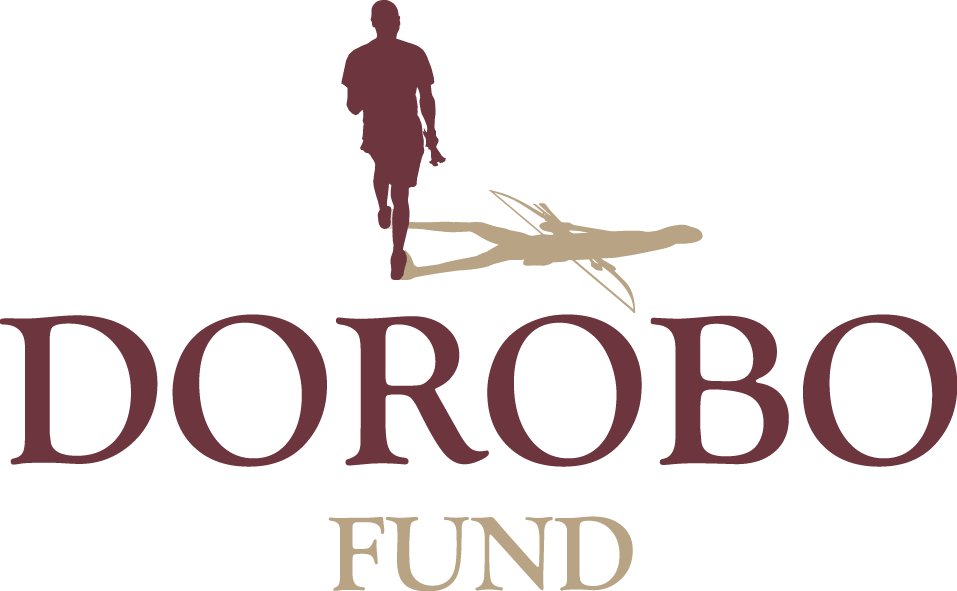Finding Home, a World Away by Emma Barber
Enjoying the sunset in Longido during my first trip to Tanzania in 2018.
It is interesting how one choice, one experience, and one connection can completely change the direction you are headed in or at least the direction you think you should be headed in. For me, the decision to take a three-week Biology of Eco-Health course through Pennsylvania State University brought me an experience that would redirect my path all together.
I’m Emma, a student at Penn State University. I first came to learn about The Dorobo Fund after I went on a Dorobo Safari in May of 2018. The purpose of the course was to get a better understanding of the relationships between the health of the environment, people, and animals here in Tanzania. While on safari, I was able to experience Tanzania’s beauty and learn about The Dorobo Fund’s initiatives. As it happens to many others, there was something special about Tanzania that made me feel - and know - I’d be back. I returned home to the United States, changed my major to Community, Environment, and Development, and six months later returned to Tanzania to connect with and learn about The Dorobo Fund and the projects it supports.
I have a newfound passion, respect, and appreciation for conservation and efforts to protect the people and cultures in Tanzania. The Dorobo Fund’s approach is unique in that they have a genuine understanding, respect for, and interest in the relationships between the environment, people, communities, and cultures they work in and with.
While I’ve been in Tanzania, I’ve been learning about female empowerment programs like the UCRT’s Women’s Rights and Leadership Forums and the Olasiti Women’s Group’s family planning outreach program. I’ve been able to spend time getting to know the women in these programs and in talking with them, gauge the impact of the programs from their perspectives.
I was able to visit Terat and meet members of the Women’s Rights and Leadership Forum who were conducting their VICOBA (Village Community Bank) meeting. It was there that I first met Namayan, mother to eleven, and grandmother to many more. Namayan is a soft spoken, gentle, and beautiful Maasai woman. When we talked about her experience with UCRT she shared her answers with confidence, passion, and excitement. She has been a part of the forum for four years and is currently the chairperson. She has taken part in several trainings conducted by UCRT and what struck me was how what she has learned through the trainings has equipped her to become a leader within her community. Namayan is using her knowledge of women’s rights to inform girls that they do not need to become married, that they can go to school, and that female genital mutilation is not needed. The sharing of knowledge is so valuable and important and Namayan’s leadership is an example of the ripple effect that it can cause. She is not only educating women and girls, but she is effectively helping change the attitudes of the whole community towards women. She stressed to me how much UCRT has done and how because of the training they are now able to stand up as women. She said that before UCRT’s involvement in Terat, women weren’t attending village meetings. Now they are going, getting involved, using their voice, and participating in these meetings thanks to the confidence they’ve gained from trainings.
At the end of our conversation, I asked Namayan what made her feel most empowered and proud. She looked down, smiled at herself, then looked back up and said that she feels most empowered and proud when she is “standing up for herself and her rights.”
Namayan, chairperson and member of the Women’s Rights and Leadership Forum in Terat Village.
This is the kind of impact that is hard to quantify. You can’t easily measure it in numbers or physical outputs. The true impact of programs like UCRT’s WRLF is best captured through talking and listening to those involved. Through that you can understand what the creation, facilitation, and offering of UCRT’s WRLF really does for communities. These women are standing up, showing up, and speaking up. They aren’t waiting for an invitation to the table but rather bringing themselves to it and making sure they are heard and involved. The empowerment of women is fundamental in the empowerment of a community and I hope that programs like these are able to grow and reach as many communities as possible.
Visiting with one of the women’s empowerment groups in Olasiti in 2019.










